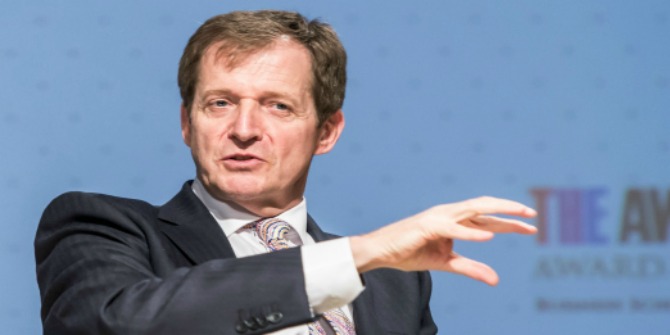Reduced growth forecasts are predicted in the run up to the 2016 Budget, as well as the potential of the Chancellor George Osborne having to adjust his borrowing forecasts. Osborne has already laid the groundwork for further spending cuts with his warning that he would use the annual financial set piece to “look at public expenditure again”. The Dods Political Monitoring Team speculate on what announcements we might see in key policy areas.
General Taxation
Income tax threshold changes – fuel duty increases – married couples tax extensions – Draft Finance Bill clarifications – stamp duty changes
Reports suggest the chancellor wants to accelerate progress towards the target of raising the threshold for the 40 per cent higher income tax to £50,000 by 2020 and we may see these increases confirmed. Given the plunge in oil prices, we can also expect an increase in fuel duties to off-set the impact on the balance sheets. Reports suggest that this could result in an additional two pence per litre on petrol being added, with The Times reporting a rise in fuel duty could help fill a £3bn hole in the country’s finances. By linking fuel duty to inflation, the Government could still argue they had frozen it in real terms.
There have been calls for a further extension of the married couples’ tax allowance as recent data has suggested that uptake of the new tax break was a fraction of what was originally expected. As it stands, critics of the tax break are claiming that the low participation rate shows that the measure is of no benefit to many families, while also being too meagre and paying out a maximum of approximately £4 a week—something Osborne could remedy in his statement.
The Government has committed to confirming the majority of measures for inclusion in the Finance Bill at least three months prior to introduction of the Bill and the final contents of Finance Bill 2016 will be subject to confirmation at the Budget. Also to be clarified, in December, the Government published a consultation on higher rates of Stamp Duty Land Tax (SDLT) on purchases of additional residential properties and the final policy design is expected to be confirmed tomorrow.
Business and Finance
Reduced business regulation – support for start ups – financial market review – Lloyds shares sales – business rates exemptions – apprenticeship levy details – implementing local business rates
The CBI has called for a reduction in the financial and regulatory burden on business, starting by linking business rates to the consumer price index rather than the retail price index and taking small businesses out of tax altogether. The business secretary Sajid Javid announced a new Government plan to reduce £10bn worth of regulation at the British Chambers of Commerce conference.
There have been calls recently to lift the restrictions on family investment under the enterprise investment scheme and the seed enterprise investment scheme. In response, Osborne said:
“I am sure my hon. Friend will understand that if he turns up on Budget day, he will see my response to it. The SEIS and EIS have been enormously successful. We have to make sure that the rules are tight enough so that they are supporting the kind of entrepreneurial activity we want, rather than being used as a vehicle for tax avoidance. I think we have got the balance right so far, but I am aware of good, positive proposals that people have put forward to improve it”.
The chancellor has been carrying out a review of the business rates system and will announce the result in the Budget. Ministers have drawn up proposals to exempt industrial equipment from business rates but this applies only to new investments, stopping far short of industry demands for an exemption for thousands of existing factories. There is also likely to be more clarification about the apprenticeship levy provision coming into force via the Finance Bill – the consultation closed on 2 March 2016.
Economic secretary Harriett Baldwin confirmed in a recent oral answer that the Financial Advice Market Review would be reporting around the time of the Budget. Osborne could use its findings to inform policy change within financial services. There is also potential for an announcement on the sale of Lloyds shares with the sale due for the spring. This had been postponed until the markets became less volatile, but the chancellor will be keen for an injection of cash into the Treasury.
Osborne has promised a “localisation” of business rates, saying in the Spending Review that they would now be kept by councils. This means councils will be able to keep 100 per cent of any additional business rates raised, through economic growth. Until recently, they could only keep half of this additional income. More details on how this will be implemented are expected.
Health
Devolved Social Care – mental health budget fears – public health and NHS staff – Social workers’ training and burseries – tampon tax donation
The Government has been looking at the way attendance allowance is devolved to local authorities through care budgets. Rumours suggest that the chancellor may make an announcement that attendance allowance is to be devolved.
With stakeholders calling for ring-fencing of children and young people’s mental health there is growing speculation about the budget allocation, with some fearing that local government funding settlements will absorb any announced funding. Following the conclusion of the children and young people’s mental health consultation in February the chancellor may make a further announcement on this, however whether budget ring fencing will be included remains to be seen. In terms of NHS staff, NHS England recently announced it will launch a scheme to improve the health of its staff. There are rumours the chancellor may build on this, particularly in light of recent Government Health workforce turbulence.
While the Minister of State for Children and Families, Edward Timpson affirmed the Government’s commitment to overhauling the way social workers are educated, rumours are circulating over government plans to for the future of social work bursaries. Answers from ministers on implementing the Child Protection Taskforce indicate that the Government may make an announcement on innovation in social work.
Finally, whilst EU rules on the VAT charged on sanitary products remain, the chancellor announced at the Autumn Statement that the £15m collected from this would be donated to women’s charities. Further donation recipients should be announced.
Work and Pensions
Unchanged pension taxation – tax on company pension contributions – helping the self-employed
After speculation that the chancellor will scrap the current system which enables savers to claim tax relief at the rate they pay income tax on their pension contributions — whether that be 45, 40 or 20 per cent and introduce a flat rate of 25 per cent, plans now appear to have been scrapped. The Financial Times reported there would be a strong Conservative backlash to any such announcement. However, The Independent has reported the chancellor is considering taxing the contributions a company makes to an employee’s pension. The tax could be worth £5bn.
During a recent oral answer, Treasury minister Greg Hands noted that helping the self-employed was one of the Government’s key priorities and said MPs should “have to see what is in the Budget on 16 March.” Potential changes could perhaps take note of Julie Deane’s recommendations within her recent review into the area.
Infrastructure
National Infrastructure Commission – Network Rail sales – Midlands Engine Investment Fund
The National Infrastructure Commission will report on three projects ahead of the Budget. The first report on Smart Power recommended the Government should pursue additional interconnectors with other European countries, with the UK becoming a world-leader in electricity storage systems. Two further reports, on northern connectivity and transport infrastructure in London are expected imminently, which could in turn allow the chancellor to make funding commitments on Crossrail 2 and east-west connectivity in the north.
Nicola Shaw’s review into Network Rail is expected to be published on the same day as the Budget, with speculation that some of the Network Rail owned stations and lines could be sold. The organisation has begun selling off its electrical power assets.
In the 2015 Autumn Statement the chancellor announced an investment fund for the Northern Powerhouse. It is thought he plans to deliver something similar for the midlands region in order to improve its economic outcomes for small businesses. The fund was worth £400m to the North.
This article is compiled from the Budget 2016 Speculation Document published by the Monitoring Team at Dods Political Information. It is reproduced here with permission from the authors.







